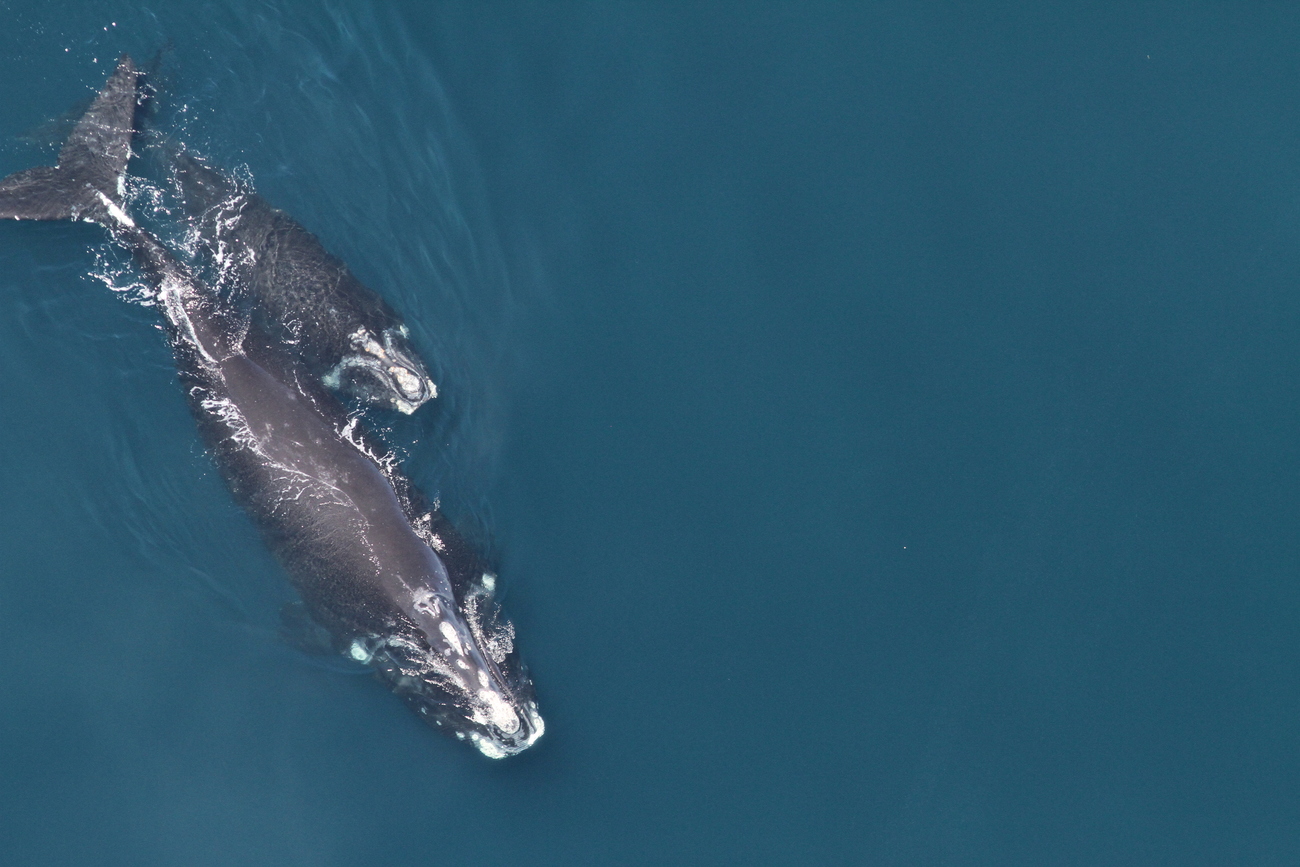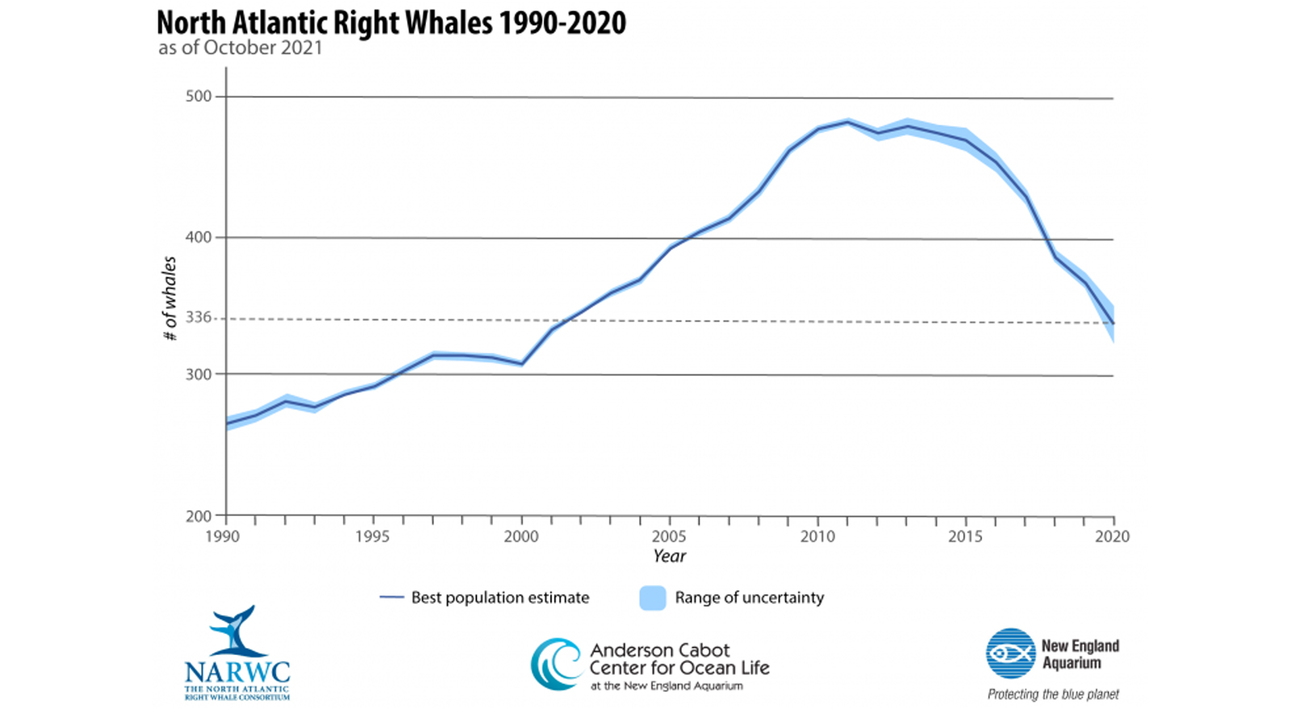Saving the North Atlantic right whale - North America
Don't fail our whalepopulation of North Atlantic right whales on steady decline
population of North Atlantic right whales on steady decline

Brussels, Belgium - 27 October 2021 – Only 336 North Atlantic right whales now remain, according to a recent publication of the North Atlantic Right Whale Consortium (NARWC). The new figures refer to the population size in 2020 and are again significantly lower than the previously calculated population size of about 366 animals.
"The new population estimate for this already critically endangered whale species is staggering," says Sharon Livermore of IFAW (International Fund for Animal Welfare). "It tells us that the North Atlantic right whale population has declined by eight percent since 2019. The population has been shrinking for ten years, and we know the reasons. They are all due to human causes and decisive action to save these whales is urgently needed."
Alarmingly, the 336 animals now estimated is the lowest number in 20 years. In 2011, there were an estimated 481 whales, the highest population size since post-whaling times. Since then, the population has been decimated by 30 per cent. The main reasons for further decline are collisions with vessels (known as ship strikes), which are usually fatal for the animals, and entanglement in commercial fishing gear. 86 per cent of all living North Atlantic right whales have been entangled in such fishing lines at least once during their lifetime.
Fortunately, 18 right whale calves were recorded in 2021, which is a promising figure. Unfortunately, five deaths have also been documented in 2021 so far. However, recent studies show that only 36 per cent of deaths are even detected.
"We have to assume that more whales die than are recorded," Livermore continues. "In Europe also, collisions with ships and entanglement in fishing gear both pose deadly threats to whales, for example to sperm whales in the eastern Mediterranean. In Europe, as in the US, policymakers and those who use the seas must act urgently now to protect and preserve these magnificent creatures."
Off the northeast coast of America, the whales' habitat overlaps with both the fishing grounds of lobster fisheries and with busy shipping routes. Lobster traps are deployed on the seabed, which are connected to buoys on the water's surface by vertical lines, and whales often get entangled in these lines. Commercial ships passing through critical whale habitat put these whales at increased risk of collisions, which are usually fatal. Recreational vessels can also be deadly to whales; one of the whale calves killed in 2021 was run over by a recreational fishing boat.
The North Atlantic right whale (Eubalaena glacialis) is listed as ‘critically endangered’ by the International Union for Conservation of Nature (IUCN). They are slow swimmers; one reason why American whalers in the 19th century called them the "right whale" to hunt. They were easy to catch and floated, once killed, on the water’s surface. Since the end of mass whaling, this whale species has showed very little sign of recovery, despite protection measures being put in place as early as 1935.
About The International Fund for Animal Welfare (IFAW):
The International Fund for Animal Welfare (IFAW) is a global non-profit helping animals and people thrive together. We are experts and everyday people, working across seas, oceans, and in more than 40 countries around the world. We rescue, rehabilitate, and release animals, and we restore and protect their natural habitats. The problems we’re up against are urgent and complicated. To solve them, we match fresh thinking with bold action. We partner with local communities, governments, non-governmental organisations, and businesses. Together, we pioneer new and innovative ways to help all species flourish. See how at ifaw.org.
Press Contact:
Benjamin Wiacek, Communications Manager
+32 472 17 15 81, bwiacek@ifaw.org

Related content
Our work can’t get done without you. Please give what you can to help animals thrive.